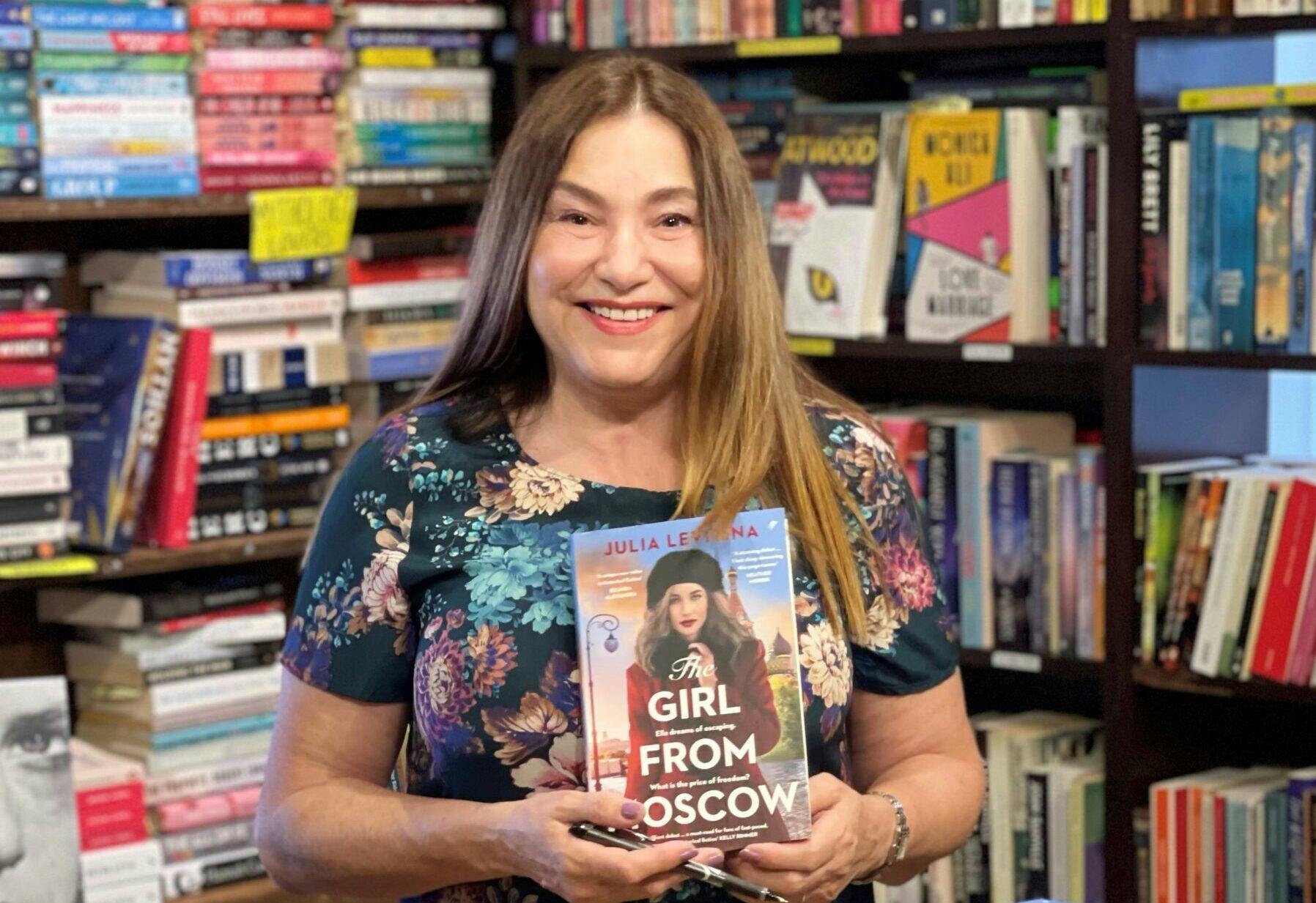Published: 9 April 2024
Last updated: 5 April 2024
When Julia Levitina escaped the totalitarianism of her Russian hometown, she told herself she would never return.
“As a teenager, I used to go to Moscow's international airport and dream of escape, listening to the departure destinations and thinking that Vienna, New York City or Paris were as close as Mars,” the Sydney-based Jewish author told The Jewish Independent.
Levitina spent 30 years in the USSR before she fled to Australia in 1991, with her young children in tow and just $200 in her pocket.
Since then, Levitina has broken her promise only once – when she took her daughter to Saint Petersburg and Moscow for her sixteenth birthday.
“Going down memory lane... There was a lot of hardship and a struggle to get out. Sometimes it is easier to forget.”
Levitina’s intimate experiences of being “locked behind the Iron Curtain” form the basis of her debut novel, The Girl From Moscow, which is set in Soviet Russia at the height of the Cold War.
“One of the reasons why I wrote The Girl From Moscow was that I wanted to tell the truth about the evil empire of the Soviet Union, which the world thought had disappeared.”
Julia Levitina
The protagonist, 21-year-old aspiring actor Ella Ashkenazi dreams of playing Natasha Rostova in War and Peace at the Moscow Theatre Academy, but when she attracts the glare of the KGB, she is labelled a traitor and soon yearns to escape the oppressive Soviet regime.
“I am drawn to strong stories, interesting and truthful characters and different experiences. As a child in the former Soviet Union, books were an escape and they opened the world to me,” Levitina added.

But while there are clear comparisons to her own life, Levitina is quick to label the work as historical fiction.
“The streets, the boulevards, the squares and the sites are all real. Ella Ashkenazi’s milieu is also informed by my time designing sets and costumes for multiple theatre productions across the Soviet Union.
“While I am a girl from Moscow, I am not the girl from Moscow, but my time there made the research part easier.”
The research Levitina references was an extensive process. The book itself is 10 years in the making – during which she raised a family, worked full-time and furthered her theatre background by completing a Master of Design at UTS – and dives deep into the political and social structures of the former Soviet Union, including the criminal system, emigration laws, dissident struggle and persecution of refuseniks.
Her family’s experience during the Holocaust in Ukraine also provided an “added layer of insight and understanding” of a totalitarian regime.
But ultimately, Levitina didn’t need to look too far in the past to grasp Russia’s brutality. While she says releasing her novel during the Russian-Ukraine war is “a coincidence”, the timing acts as an important reminder of the country’s strong agenda.
“One of the reasons why I wrote The Girl From Moscow was that I wanted to tell the truth about the evil empire of the Soviet Union, which the world thought had disappeared,” Levitina said.
“It is disturbing to see that Russia under Vladimir Putin has resurrected Stalin’s regime and is threatening world democracy. The suspicious death of Alexei Navalny shows how Putin can act with impunity and without any regard for human suffering.”
Despite Russian being Levitina’s first language, she chose to write the book in English, “an achievement in itself” which paid off, with The Girl From Moscow being shortlisted for the Australian Society of Authors Commercial Fiction Prize for unpublished manuscripts.
The novel’s success has reinforced its central message for Levitina – to own your life and make of it whatever you desire.
“Do you live the life you are given or the life you dream of? Is freedom something that comes from within or something you fight for?
“Never give up and don’t take no for an answer,” Levitina concludes.
Levitina is now working towards her next novel, a family saga set in Moscow and Broken Hill in 1928 and a prequel of sorts to The Girl From Moscow.





Comments
No comments on this article yet. Be the first to add your thoughts.